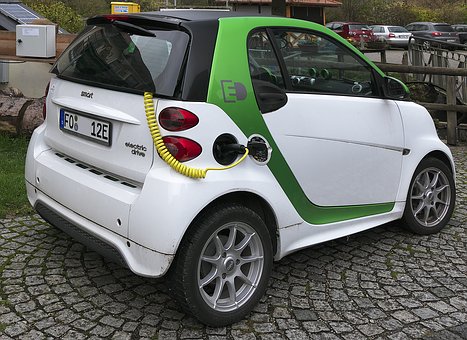U.S. Departments of Energy, Transportation Announce Joint Effort to Expand EV Charging Network

The U.S. Energy Department on Dec. 14 signed a memorandum of understanding with the Transportation Department to create a joint office that will support the deployment of $7.5 billion from the Infrastructure Investment and Jobs Act to expand national electric vehicle charging network. The initiative is an important component of President Biden’s plan to accelerate the adoption of electric vehicles, tackle climate change, and support manufacturing jobs.
The law, enacted last month, directs both the agencies to coordinate on new initiatives to support the transition of the transportation sector to electric vehicles and non-emitting technologies. The transportation sector currently accounts for 29 percent of U.S. emissions.
The new Joint Office of Energy and Transportation aims to fill the gaps in rural, disadvantaged, and hard-to-reach locations. The office will help expedite the deployment of a reliable, affordable, and equitable network of charging stations.
The office will provide technical assistance to states and localities, including development of comprehensive plans for charging station networks, in order to help them strategically build charging stations and associated infrastructure.
The agencies are required to implement investments in zero-emission passenger, transit, and heavy-duty vehicles that facilitate cleaner and more affordable transportation options. The investments support President Biden’s executive order issued in August setting a goal for the U.S. to have half of all new vehicle sales to be electric by 2030.
Further, the office will help states develop plans to ensure that they contribute to the administration’s Justice40 initiative that requires at least 40 percent of the benefits from climate and clean energy investments to reach underserved communities.
EnerKnol Pulses like this one are powered by the EnerKnol Platform—the first comprehensive database for real-time energy policy tracking. Sign up for a free trial below for access to key regulatory data and deep industry insights across the energy spectrum.
ACCESS FREE TRIAL